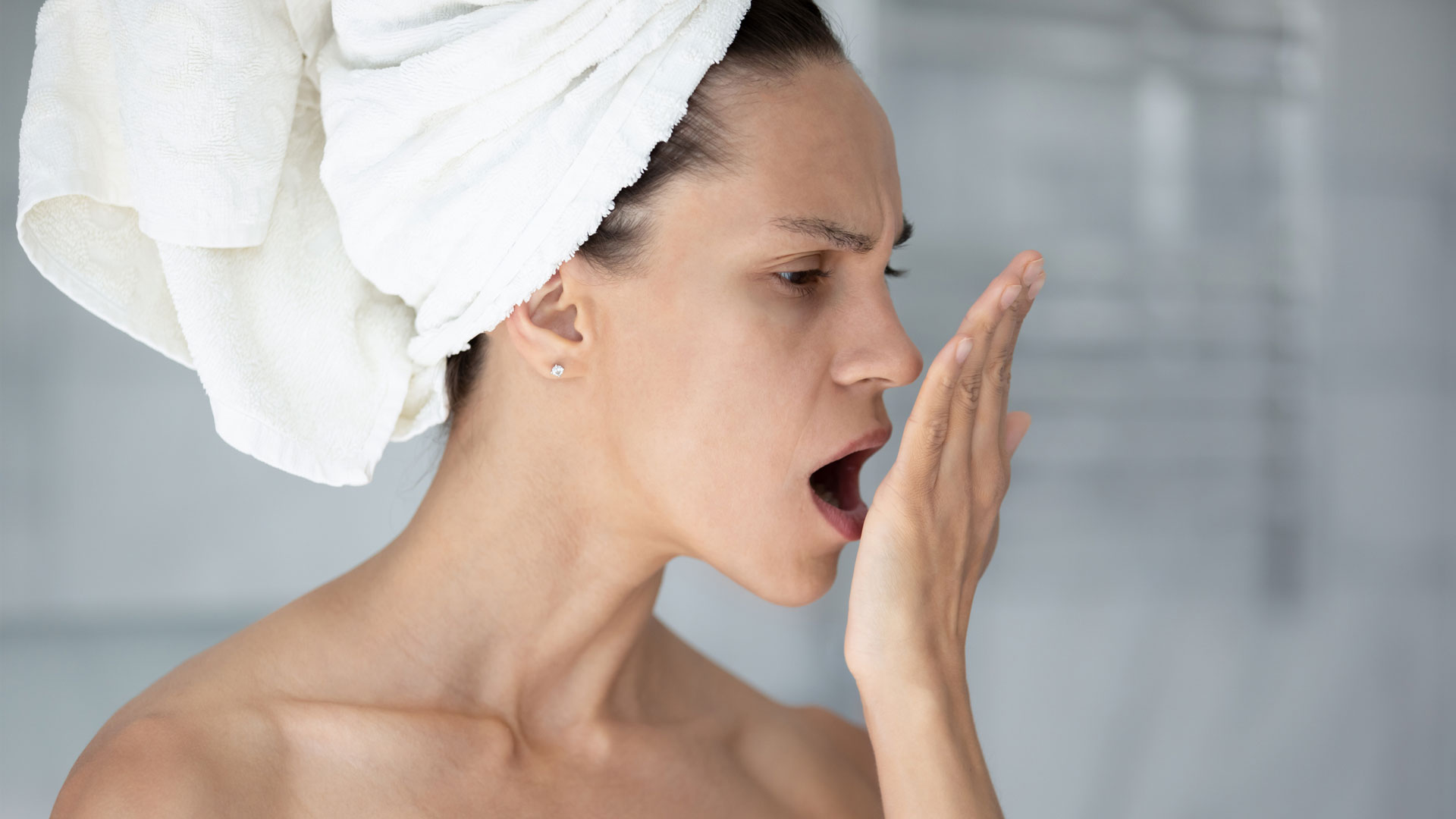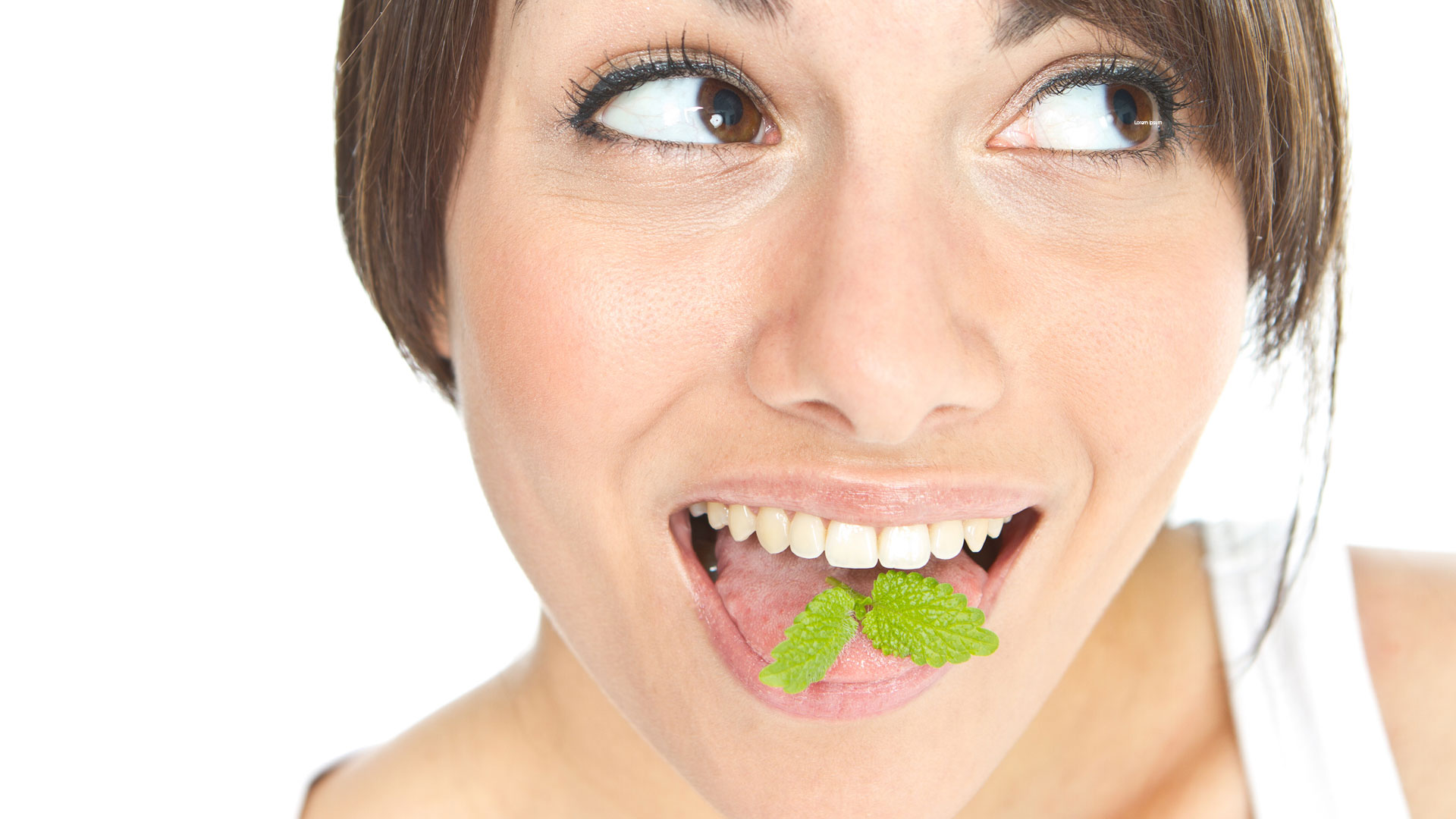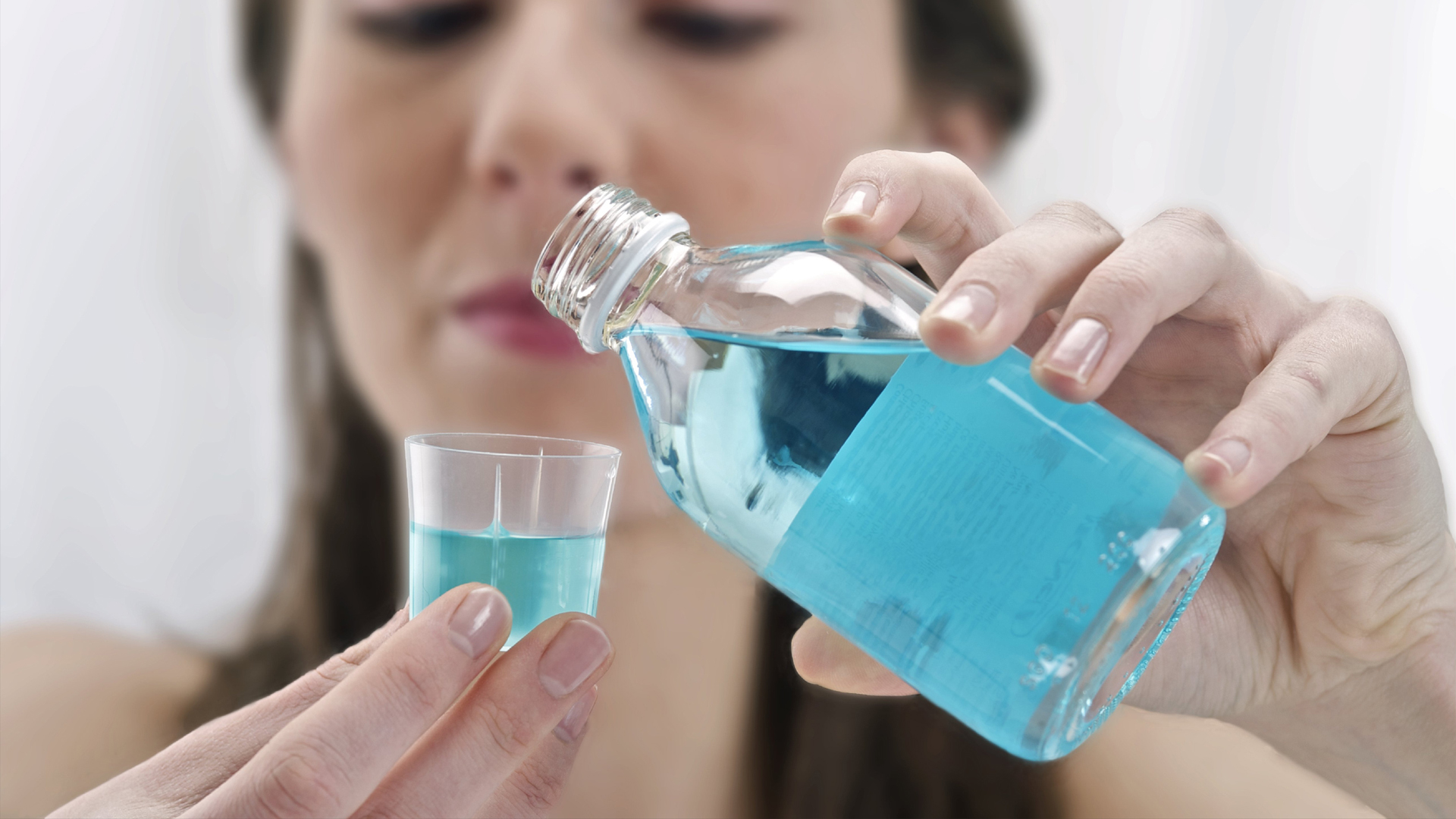5 major causes of bad breath
We’ve asked two dentists to identify the causes of bad breath and the steps you can take to prevent it

Whatever the causes of bad breath, smelly breath can be a genuine nuisance. It can make you feel self-conscious and is considered by many as a social taboo. Whether you think you might need some help freshening your breath, or if you’re just curious about the causes of bad breath, this article will be able to shed some light on the subject for you as we explore 5 causes of bad breath.
Bad breath can have many possible causes, but the good news is that a lot of them have easy fixes as well, such as investing in one of the best electric toothbrushes to take your routine to the next level. So if you follow some of the steps below, you might find that some simple lifestyle changes could help you achieve fresh breath that lasts all day.
We’ve spoken to two dentists, Dr. Inna Chern and Dr. Anjali Rajpal, to ask them about the leading causes of bad breath and how they advise their patients to treat them. Dr. Chern earned her dental degree at the Stony Brook University of Dentistry and now practices in New York City. Dr. Rajpal received her Doctorate in Medical Dentistry from Tufts University in Boston, MA. She currently practices in Beverly Hills and works to blend art and science into cosmetic dentistry.
5 causes of bad breath
1. Bacteria
Dr. Chern told us bacteria is one of the leading causes of bad breath: "Halitosis or bad breath is caused by bacteria that live in dental plaque and tartar. When plaque accumulates around teeth, it harbors odor-causing bacteria." Maintaining a healthy oral hygiene routine should help keep bacteria at bay.
2. Fungi
"The most common culprits of bad breath with an oral origin are from bacterial or fungal buildup on the tongue," Dr. Rajpal said. According to the Mayo Clinic, Oral thrush or oral candidiasis is a common fungal infection that can cause bad breath. While oral thrush is more common in infants or older people, it can happen to anyone at any stage of their life. It can be caused by taking some medications too.

3. Dry mouth
Another leading cause of bad breath is dry mouth, Dr. Rajpal told Live Science. Also known as xerostomia, dry mouth is a condition that develops when your body doesn’t produce enough saliva. The condition has several potential causes: aging, certain medications, nerve damage, and some neurological diseases such as dementia. Some healthcare providers recommend chewing on sugar-free gum or sweets to help alleviate symptoms and encourage your body to produce more saliva. Some medications can help promote the production of saliva if other remedies don’t work.
4. Acid reflux
Acid reflux, or gastroesophageal reflux disease (GERD), can also cause bad breath. Research published in the journal of General Internal Medicine in 2008 found a clear link between the two conditions after surveying patients who experienced reflux to find out if they also experienced bad breath. People who suffer from GERD can find their symptoms are triggered by certain lifestyle factors, including eating large amounts of food, eating just before going to bed or laying down, and even eating particular foods, including acidic foods or fried foods.
5. Other health conditions
Dr. Rajpal told us that bad breath can be a sign of other health conditions too: "Systemic conditions such as sinus issues, tonsil disorders, diabetes, lower respiratory tract infections, kidney or liver failure or carcinomas can all contribute to halitosis or bad breath as well." If you’ve tried a variety of remedies and are still struggling with bad breath, or you have other symptoms, it’s worth mentioning your issues to your doctor or dentist. They will be able to help you get to the root cause of the problem.
- Related: Are teeth naturally yellow?
How to get rid of bad breath
Treating bad breath will ultimately depend on what’s causing the issue. But there are some general hygiene practices you can follow to help keep your mouth free from odor-causing bacteria. Some lifestyle adjustments and changes to your diet may help keep bad breath under control. Dr. Inna Chern recommends the following routine to stay ahead of bad breath:
- Brush your teeth for two minutes twice a day
- Floss or water floss at least once a day
- Rinse with mouthwash once or twice a day
- See your dental healthcare provider twice a year
If your breath doesn’t improve with a good oral hygiene routine, you will need to speak to your dentist: it may be that a deeper clean is required. Dr. Rajpal explained: "a proper hygiene regimen is crucial to mechanically remove any soft plaque buildup before it has the opportunity to mineralize, harden and attach to the tooth. At that point, we as dental professionals need to step in to remove the hardened calculus or tartar. Patients that have heavy attached buildup underneath their gums will often complain of bad breath but will see it resolve after we perform a deep cleaning treatment."

Your diet also has a role to play in keeping your breath fresh, and it’s not simply a case of avoiding foods that contain garlic! "It is important to stay very hydrated and focus on having a healthy alkaline-based diet low in carbohydrates and high in crunchy, healthy foods, green vegetables, and probiotics to reduce the bacteria’s ability to thrive in the oral environment," Dr. Rajpal explained. Alkaline foods include green vegetables, nuts, citrus fruits, and other whole foods.
Healthcare providers are on hand to help with issues like bad breath. And although it’s rare, halitosis can be caused by some chronic health problems such as diabetes or kidney and liver failure. Your dentist may advise you to consult your physician if they suspect your bad breath is caused by something other than oral hygiene issues. Once any underlying health problems are under control, you will likely find your breath starts smelling neutral once again.
Sign up for the Live Science daily newsletter now
Get the world’s most fascinating discoveries delivered straight to your inbox.
India Bottomley is a health and beauty writer whose work has been published in the likes of Cosmopolitan, Forbes, and Dazed Magazine. A lifelong skincare aficionado, India has been writing research-led pieces on trending skincare, makeup, and cosmetic procedures since 2016. She takes particular interest in the growing connection between tech and beauty, and has had pieces on the topic published in American Healthcare Journal. When not writing she can be found exploring national parks or at the beach chasing sunsets.











